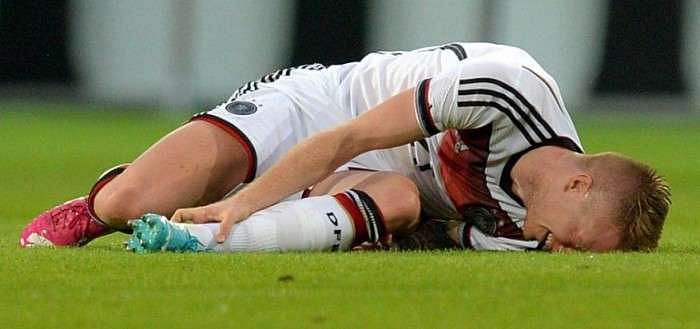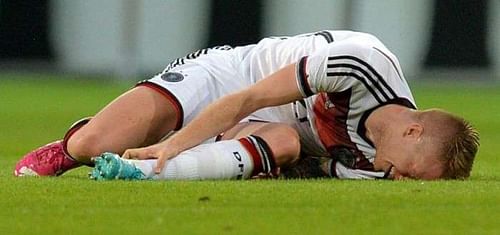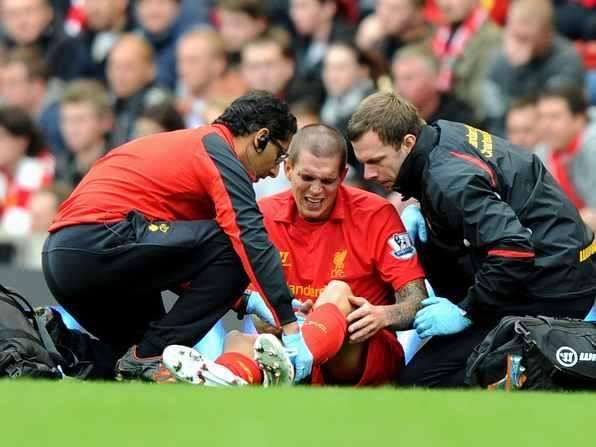
Painkillers: The darker side of modern sport

The use of painkillers is hardly professional sport’s ‘dirty little secret’ anymore, but the debate about their abuse has been brought into focus time and again. For some athletes, pain pills are as essential to getting through a season as working out. With so much on the line in the cutthroat world of elite sports, sidelined players often seek fringe medicine for faster recoveries.
While some claim it is a form of legal doping, others are of the opinion that it is an example of excessive reliance on medication that is putting the long-term health of sportsmen at a greater risk.
How painkillers work
Painkillers by definition mask pain. First, by interfering with and blocking the transmission of pain signals to the brain, and then by working in the brain to tweak the sensation of pain. These drugs neither find nor kill pain but alter the user’s perception of the pain.
But pain exists for a reason. It is the body’s way of telling that damage has been done, alerting the athlete when he should stop and rest. Painkillers do not stop the damage, they just stop the athlete from knowing about it.
Taking a dosage of painkilling drugs and injections covers pain and allows the athlete to continue to move as though they have no damage. This inevitably leads to exerting more pressure on the already injured area, causing a greater damage which often results in smaller injuries turning into serious ones. The use of painkillers in sport is, therefore, a very debated and a highly contentious ethical issue.
The pain game: Are careers being compromised?
Having being forced to quit football aged just 31, the much admired former Liverpool defender, Daniel Agger opened up recently about the extent to which he put his body through in order to continue playing. Suffering from a chronic back problem, Agger admitted taking too much anti-inflammatories in his career, sometimes even exceeding the recommended maximum dose, putting his health at risk.
Despite a prolapsed disc in the back and overextended joints, Agger continued playing at the highest level but it came at a cost. His body gradually broke down and now despite having retired from the game, he continues suffering from pain in his back “almost all the time”.

Andrew Flintoff, the hero of England’s 2009 Ashes triumph, in fact blames the series for ending his career. Failing to overcome a chronic knee problem, Flintoff received a huge number of painkilling injections to help him carry on through the series which ultimately left his troubled knee “in bits”, so much so that not even a major reconstructive surgery could save his career.
Chelsea’s club captain John Terry has a long history of playing through the pain barrier, never afraid to put his body on the line for the team’s cause. During the club’s memorable run in the 2012 Champions League, Chelsea were dealt with a particularly major scare when Terry was forced to come off early in the second leg of the quarterfinal against Benfica gasping for air and complaining of breathing problems.
Despite having cracked two ribs in the first leg only a week back, Terry took to the field under a heavy dosage of painkilling injections, resulting in the mishap.
Dominic Matteo, the former Leeds United midfielder, is one sportsman who knows only too well about playing through excruciating pain during his career and the potential long-term side effects of painkillers. The dread of being left out was so much more that he continued taking the injections every Saturday before a game despite a fear of needles, with some being injected into the ball of his foot.
The continued helplessness to get through the matches on the drug throughout his long 17-year career in the English top-flight over painkilling injections has left him facing several spinal operations, that in his own words are a “stuff of nightmares”, so much so rendering him unable to even give his kids a lift!
Conclusion

The culture of painkiller dependence often goes beyond the field, court and pitch, directly influencing the lives of the players long after their careers have ended. Several players have often described the extent of damage done to their bodies after agreeing an intake of preventive painkillers to halt pain during matches.
Gary Monk once recalled how he had one too many injections in his back to help him through a match, damaging a nerve and leaving him without any feeling in his right foot!
Although medication taken preventively, normally steroids injected directly into painful joints, can be helpful in the short-term, prolonged reliance is strictly not recommended because of the risk of damage to tissues. Steroids block the white blood cells from operating properly resulting in the thinning of cartilage and weakening the immune system.
There are a number of unpleasant side effects associated with painkiller abuse. While mild side-effects include constipation, dizziness and nausea, they also interfere with the normal functioning of the lungs and kidneys which suppresses the body’s ability to breathe properly. High dosages over long periods result in the body holding onto fluids, swollen ankles and irregular heartbeats – all the symptoms of a potential heart failure.
“When the head can’t work it out, then the body had to do it. I am not gaining anything personally from saying this but I can only hope that other athletes do. It could be that others take a pill or two less.”
The ever-so-honest Daniel Agger might have come to regret his decision at a time when the price for which had already been paid, but only hopes that his speaking out can help the others fully understand the dangers and repercussions that come with too much dependency on medication.